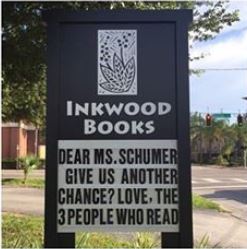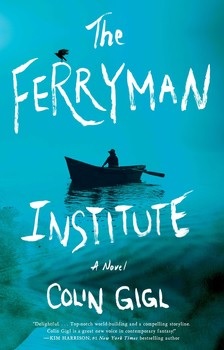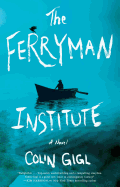Morton Schindel, founder of Weston Woods Studios, which made films and audiovisual materials adapted from children's books, died on Saturday. He was 98.
After several unrelated jobs and a period battling tuberculosis, in 1949 and 1950, Schindel began filmmaking, but the company he worked for, Teaching Films, went bankrupt, and he became an independent producer. In 1951, he was recruited to serve as film officer and attaché in the U.S. Embassy in Ankara, Turkey, then returned to the U.S. in 1953 to launch Weston Woods Studios. The company struggled in the early years, but in 1966, the federal government passed the Elementary and Secondary Education Act (ESEA) and the first school libraries were opened.
In 1984, Weston Woods Studios received an Academy Award nomination for best animated short for Doctor DeSoto, based on the children's book Doctor Desoto by William Steig, and in 1996, Weston Woods Studio won the Andrew Carnegie Medal for Excellence in Children's Video for Owen, based on Owen by Kevin Henkes.
In 1996, Weston Woods Studios was acquired by Scholastic, and Schindel stayed on as an advisor. From 1982 to 2016, Schindel served as Chairman of the Board of Directors of the Weston Woods Institute, a non-profit organization for the support of innovative techniques for educational and cultural communications with children. In 1996, he founded Mediamobiles, Inc., a company that developed mobile multimedia learning environments.
Richard Robinson, chairman, president and CEO of Scholastic, said, "Mort Schindel not only founded the art form and business of creating films based on outstanding children's books, he also helped generations of teachers and librarians understand how they could reach more children with these great stories through the medium of film, video and television. He pioneered this important art form by working with hundreds of authors and illustrators including Maurice Sendak, William Steig and Robert McCloskey, winning their support by making creative films like Where the Wild Things Are, Blueberries for Sal, Harold and the Purple Crayon and The Amazing Bone, which adhered absolutely to the spirit and story of the original printed work."
Schindel received many awards and honors, including the Regina Medal for a lifetime contribution to the field of children's literature, the Distinguished Service Award from the Association of Education Technology, the Action for Children's Television Hall of Fame Award and the American Libraries Services for Children Lifetime Achievement Award for "reaching children from the hills of Appalachia to the suburbs of Tokyo with books, films, stories and songs." He also received the Distinguished Alumnus Award from Teachers College, Columbia University as the only graduate "who never earned a dime as a librarian or a classroom teacher," but nonetheless became "a teacher to millions."
---
Bonnie R. Crown, a literary agent, writer, and lecturer who shepherded the translation of more than 100 books from Asia, died last Thursday. She was 88.
As director of the Asian Literature Program at the Asia Society from 1959-76, Crown traveled to Asia, often unaccompanied and for months at a time, to discover new writers and books, including major works and languages that had never before seen an English translation. She worked closely with James Laughlin of New Directions under the aegis of the Asian Literature Program to give grants to writers, get works to publishers, place writings in magazines, broadcast readings on the radio, and have works performed live. She continued this work as an independent literary agent into the 1990s.
Some of the books she worked on include In Praise of Krishna, translated by Denise Levertov and Edward C. Dimock, Jr.; the Chinese poetry collection Sunflower Splendor, co-edited by Wu-chi Liu and Irving Yucheng Lo; and The Haiku Handbook by William J. Higginson.
Crown lectured and gave readings throughout Asia with a focus on Korea, served on boards of many Asian-focused organizations, and wrote reviews of Asian writings for World Literature Today. She was often praised in book acknowledgements. Nguyen Ngoch Bich, editor of A Thousand Years of Vietnamese Poetry, called her role "a great deal more than what her title implies, since she has been the guiding angel of this project."
 The Velveteen Rabbit Bookshop, Fort Atkinson, Wis., is closing at the end of September, the Daily Union reported.
The Velveteen Rabbit Bookshop, Fort Atkinson, Wis., is closing at the end of September, the Daily Union reported.










 Barnes & Noble has added the 7-inch
Barnes & Noble has added the 7-inch 
 Volumes Bookcafe
Volumes Bookcafe
 "Dear
"Dear  The Vaccine-Friendly Plan: Dr. Paul's Safe and Effective Approach to Immunity and Health--from Pregnancy Through Your Child's Teen Years
The Vaccine-Friendly Plan: Dr. Paul's Safe and Effective Approach to Immunity and Health--from Pregnancy Through Your Child's Teen Years In a fantasy debut reminiscent of the classic film Death Takes a Holiday and Piers Anthony's Incarnations of Immortality, Colin Gigl introduces a hero with the ultimate bummer job description--sending the newly dead onto the next plane--and the adventure that will either cure his case of burnout or kill him for good, something of an accomplishment considering his occupation comes with a lifetime supply of immortality.
In a fantasy debut reminiscent of the classic film Death Takes a Holiday and Piers Anthony's Incarnations of Immortality, Colin Gigl introduces a hero with the ultimate bummer job description--sending the newly dead onto the next plane--and the adventure that will either cure his case of burnout or kill him for good, something of an accomplishment considering his occupation comes with a lifetime supply of immortality.